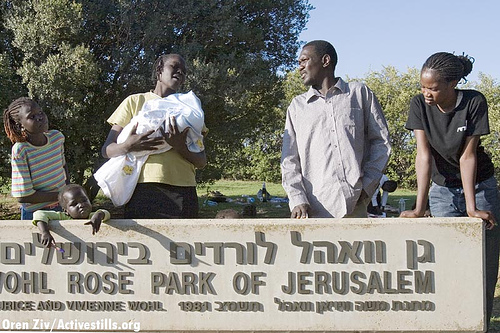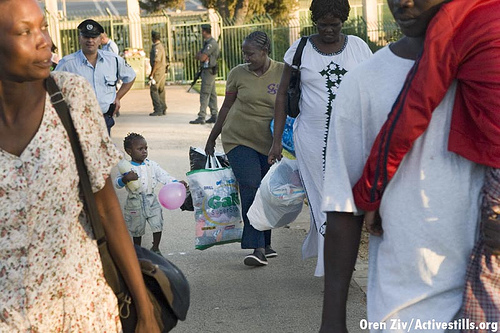
In July 1977 U.S. President Jimmy Carter commended Israeli Prime Minister Menachem Begin for admitting into Israel sixty six refugees from Vietnam -- known as the Boat People - who had escaped the hardships and persecutions of a newly united Communist Vietnam and were floating around in the oceans of the world excluded by many nations.
Mr. Begin's reply to President Carter was:
"It was a natural act to us, Mr. President. We remembered, we have never forgotten, the boat with 900 Jews having left Germany in the last weeks before the Second World War... traveling from harbor to harbor, from country to country, crying out for refuge. They were refused... Therefore it was natural that my first act as prime minister was to give those people a haven in the land of Israel."
In the past few years, Israel's border with Egypt - which includes over 200 kilometers of fence-less desert land - has become an infiltration point for Africans who have escaped from war and persecution, mainly from Sudan and Eritrea. According to Amnesty International, as of 2009 there were approximately 18,000 African asylum seekers - people applying for refugee status - in Israel.

Israel is signed on the 1951 UN Refugee Treaty, which states that those who have escaped their homes because their lives were in danger - due to their race, religion, nationality or political opinion - should not be deported back to their country. The African asylum seekers are not deported, but out of the thousands that have applied for refugee status, only 450 Sudanese (all from Darfur) have been approved for permanent residency in Israel. The rest are living on temporary visas, allowed to work, but not entitled to any social services.
The case with the Sudanese asylum seekers is even more complicated because Israel considers Sudan an enemy country, and therefore views it as a security risk to give Sudanese refugee status.
In this video report - prepared for VJM (Jan. 2010) - I checked how Israel is dealing with the wave of asylum seekers, and especially those who come from the war torn country of Sudan.
A few months ago, Israeli Prime Minister Benjamin Netanyahu approved the construction of a barriers and advanced surveillance equipment that would block the main infiltration routes along the Israeli-Egyptian border. The Israeli government has also endorsed an anti-Infiltration bill that calls for automatic criminalization of any person who enters Israel without a permit - with no consideration of the circumstances of his or her entry.
Netanyahu warned that the lack of any real separation between Egypt and Israel is being used for trafficking of drugs and people and presents a risk to national security. His government's policy is to minimize the chance of anybody infiltrating the country. But since there is no other way for asylum seekers to enter, that basically means Israel's doors will be closed for them.

Links:
- "African Refugees Pose a Dilemma for Israel", U.S. News, 28/02/2008
- Refugees Pose Moral Puzzle, N.Y. Times, 09/06/2006
Photos: Oren Ziv, Activestills.org
